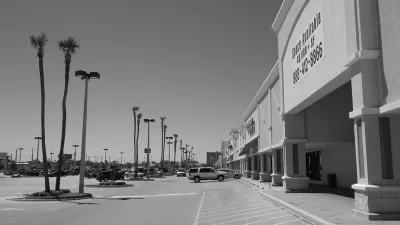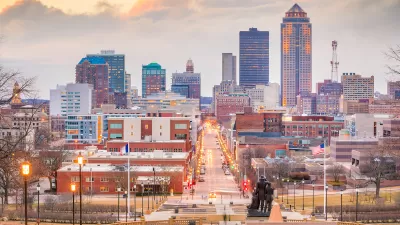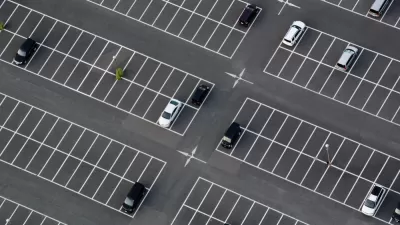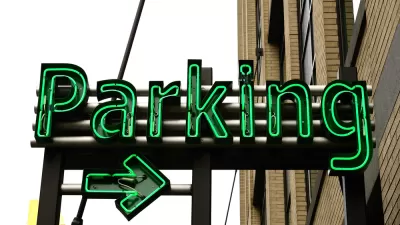Here's one you probably didn't see coming. A recent pair of articles makes the case for preservationists to find ways to protect surface parking lots.

(Updated 6/5/2014) According to a new article by David Rotenstein on the National Council on Public History website, "parking lots are a key component of American landscapes and histories. While no reasonable preservationist or historian would advocate for saving every parking lot and retaining what are often critically characterized as “seas of asphalt,” there may be merits to preserving elements of the twentieth-century built environment that capture our nation’s automobile-centered culture and the infrastructure required to support it."
"For many reasons–aesthetics, environmental health, the high cost of urban and suburban real estate–it’s more difficult to make a case for parking lots as contributing resources in a cultural landscape than it is for the open spaces that are preserved around many kinds of historic sites," says Rotenstein. But he gives "creatively incorporating adaptive use techniques" a shot anyway: "Parking lots that once catered to cars now find secondary uses as urban farmers’ markets, festival sites, and pop-up skate parks. Many, like those in suburban Washington or Atlanta, have been appropriated by new immigrant communities who succeeded America’s baby boomers in suburbia. Some of these spaces are now serving as unofficial civic plazas and market places…"
Rotenstein published a supplemental post at the History Sidebar website, where he points out the irony that the National Historic Preservation Act of 1966 was created, in part, as a reaction to old buildings being demolished to make space for parking lots. But now, the "anything is new is better" mantra of many planners and developers has reversed the pendulum back to parking lots, "[even] historic preservationists with the best intentions find themselves overlooking and minimizing the historical significance of suburban commercial landscapes, i.e., parking lots."
Rotenstein is also aware of how the idea of preservationists working to protect parking lots has been the subject of satire before.
*This post was updated with the correct spelling of the author's name.
FULL STORY: Blacktop history: The case for preserving parking lots

Planetizen Federal Action Tracker
A weekly monitor of how Trump’s orders and actions are impacting planners and planning in America.

Map: Where Senate Republicans Want to Sell Your Public Lands
For public land advocates, the Senate Republicans’ proposal to sell millions of acres of public land in the West is “the biggest fight of their careers.”

Restaurant Patios Were a Pandemic Win — Why Were They so Hard to Keep?
Social distancing requirements and changes in travel patterns prompted cities to pilot new uses for street and sidewalk space. Then it got complicated.

Platform Pilsner: Vancouver Transit Agency Releases... a Beer?
TransLink will receive a portion of every sale of the four-pack.

Toronto Weighs Cheaper Transit, Parking Hikes for Major Events
Special event rates would take effect during large festivals, sports games and concerts to ‘discourage driving, manage congestion and free up space for transit.”

Berlin to Consider Car-Free Zone Larger Than Manhattan
The area bound by the 22-mile Ringbahn would still allow 12 uses of a private automobile per year per person, and several other exemptions.
Urban Design for Planners 1: Software Tools
This six-course series explores essential urban design concepts using open source software and equips planners with the tools they need to participate fully in the urban design process.
Planning for Universal Design
Learn the tools for implementing Universal Design in planning regulations.
Heyer Gruel & Associates PA
JM Goldson LLC
Custer County Colorado
City of Camden Redevelopment Agency
City of Astoria
Transportation Research & Education Center (TREC) at Portland State University
Camden Redevelopment Agency
City of Claremont
Municipality of Princeton (NJ)





























